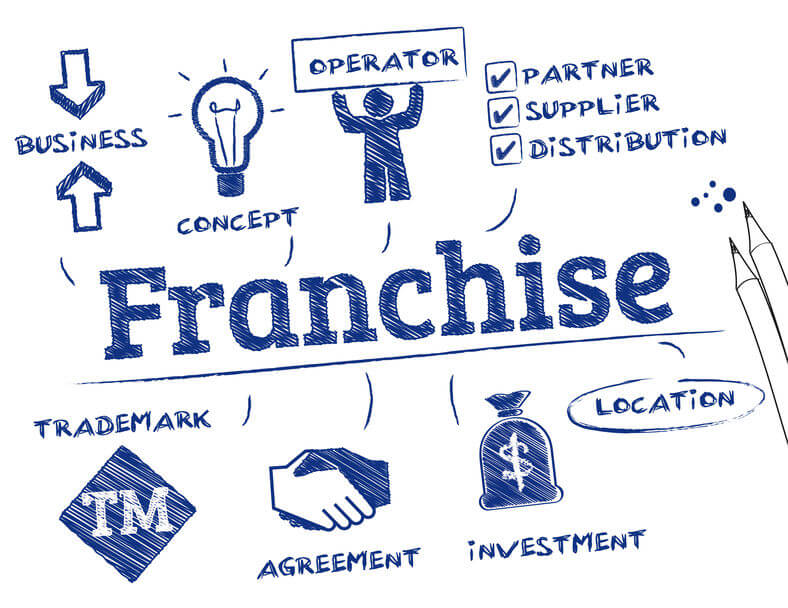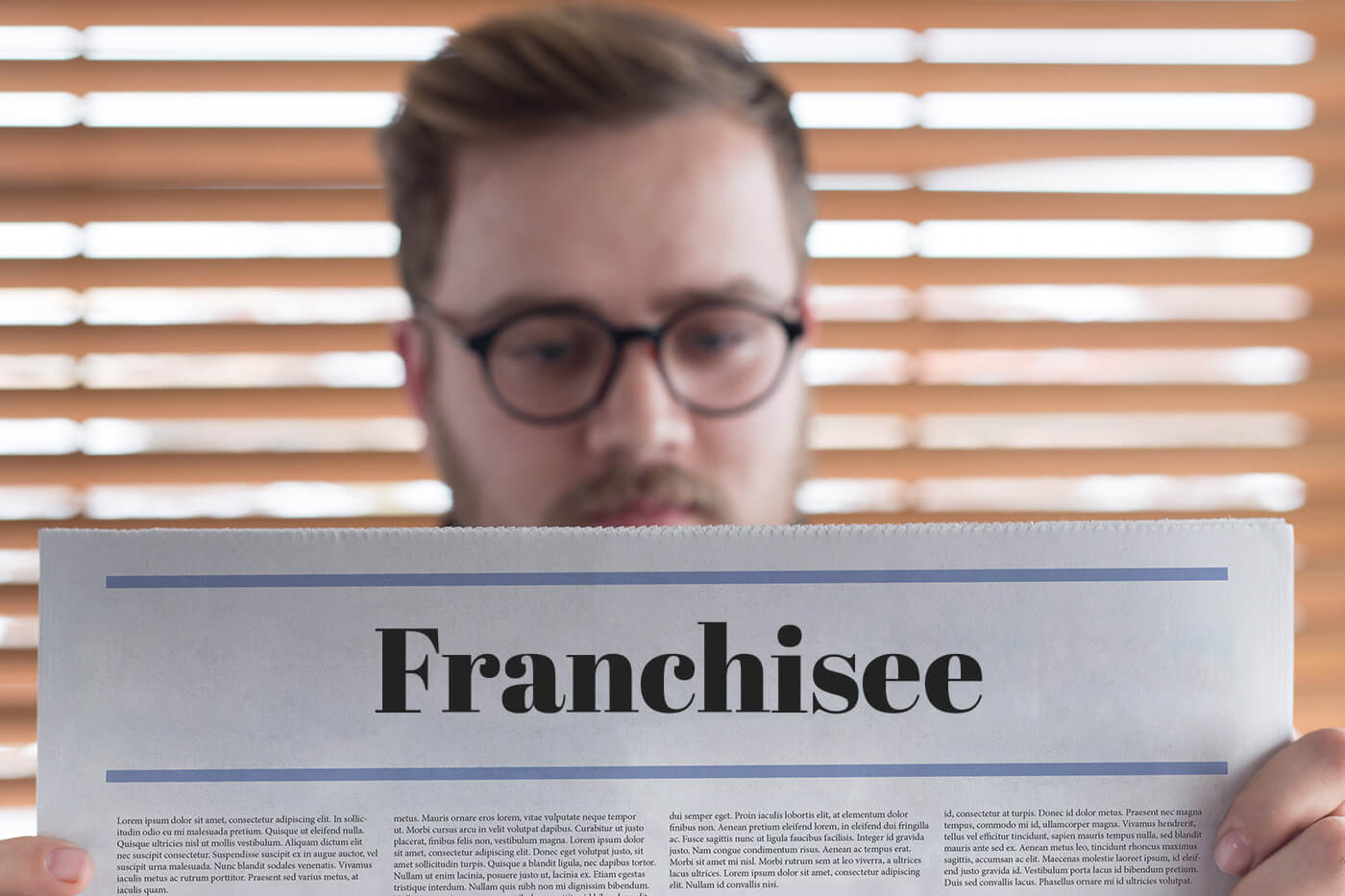You’ve always wanted to be your own boss. You have a strong entrepreneurial spirit and are self-motivated to succeed. But you don’t feel you have the training or experience to start a business of your own at this time. And your capital is limited. Bottom line, you think you might have to put off your goal for years.
Maybe not. Have you ever wondered how to become a franchisee? As such, you’ll own your own business, but it will carry a name and branding that might already be familiar to your customers or clients. Owning a franchise is a sort of entrepreneurial head start. You have brand recognition, a built-in market base, and proven training and support before you even open your doors.
How do you know if this business model is right for you? To help you decide, let’s start with a basic definition and answer the question: What does a franchisee do?
What Is a Franchise?
A franchise is a privately owned business that’s tied in with a larger and more established company that might already be well known to customers. A few of the countless leading operations (franchisors) include McDonald’s, The UPS Store, The Maids, Freeway Insurance, Anytime Fitness, Holiday Inn, and Supercuts.
One thing in common among the above franchisors is that they have very little in common. In other words, franchise operations exist in a multitude of business categories, from fast food and insurance to hair salons, gyms, and courier services, not to mention hundreds of other categories.
What they really do have in common is brand familiarity. You’ve probably heard of each of these companies. If you visit a McDonald’s in Nashville, Tennessee, you’ll feel right at home even if you’ve never been to Music City. That’s because, in many ways, this restaurant is just like others you’ve visited elsewhere. Same menu, same operational structure, and the same name, logo, and signage out front.
Is a Franchise Right for You?
You’ll need to know a whole lot more about the basic qualifications of becoming a franchisee, but you first want to determine whether or not you even want to explore the opportunity.
Can you work within an existing structure with set policies and procedures that minimize the trial and error risk you’d otherwise face?
If you have an idea for a product or service that is truly revolutionary, franchising might not be the right fit. Brand familiarity is a major advantage for franchisees. It keeps you, the business owner, from having to spend a lot of valuable time introducing yourself to your market and establishing credibility. Your customers already know you, in a sense. They’re familiar with what you’re selling if you’ve joined the right operation.
Familiarity is good. It’s the key to unlocking your success and is a major reason for becoming a franchisee.
Another major reason is the training, guidance, and support you’re likely to receive. This can be a significant advantage if you’re a first-time business owner.
What Do Franchisees Typically Have to Pay the Franchisor?

Still interested? Good! Time for the nitty gritty. Your costs for becoming a franchisee will vary depending on the size and complexity of the organization you’re joining.
Franchise Fee
Wondering how much a franchise costs? The fee is the basic cost of membership, so to speak. If you buy into a state-of-the-art fitness center, you’ll need a new or extensively remodeled building in a city large enough to support such a business. You’ll need pricey workout equipment and a staff of professionals, among other start-up costs.
On the other hand, if you buy a franchise associated with an existing national insurance brand, you might need little more than a laptop, a cell phone, and a dedicated room in your home or apartment to conduct business. You might meet with prospective clients at the local coffeehouse. There’s no inventory or sophisticated equipment to buy. Only as your business grows will you consider hiring employees and moving into commercial office space.
The point is that your franchise fee can cost millions of dollars or a few thousand, depending on the operation you buy into.
Royalty Payments
The products or services you offer are actually the property of your franchisor. That’s the thought behind the royalty payments you must make. This might be billed to you as a percentage of your revenue or your net profits. It might be an upfront cost based on expectation of sales, or charged at some point after you’ve received the earnings.
Each licensing agreement is different, but those terms and others should be clearly spelled out in your Franchise Disclosure Document, or FDD.
Associated Costs
Your franchisor might establish an additional fee to cover your portion of the company’s marketing costs. And then there are the capital needs that every business has. You won’t immediately turn a profit, so you must have a certain level of funding behind you to cover your business and living costs until you generate a dependable level of income.
When is it reasonable to assume you’ll begin to bring in adequate revenue? What other costs and expenses can you expect? These and other questions should be asked of your franchise representative and clearly stated in your FDD. And before signing any contract, let your lawyer and accountant review it and make sure there’s minimal risk.
How to become a franchisee
The first step in learning how to be a franchisee is to decide what type of business might fit your budget, your interests, and your life goals. That can be the hard part, involving a lot of internet research.
What operations are looking for franchisees? Which inspire your interest? You’ll probably be working 40-plus hours a day at your new business, so it had better inspire you.
You can also use the internet to gather contact information. Try using search terms like “fast food businesses for sale” or “insurance company opportunities,” for example. Experiment with different phrases until you find the specific websites you’re looking for. Once you have the details, reach out to a representative by phone or other means to express your interest. There’s no commitment at this stage — it’s just the start of what could be several important conversations or meetings.
The job of the franchise representative is to be a critical information source. If you feel the information you receive is muddled, confusing, or suspect, keep searching. This will be one of the most important business decisions you ever make, so you have to get it right.
Take Your Franchise Search to Freeway Insurance
At Freeway, we’re actively looking for committed franchisees all over the country. As one of the nation’s largest and most respected personal lines insurers, we have much to offer you in return.
We can give you instant access to major insurance brands so you can start building an inventory of trusted products your clients know and trust. You’ll always be your own boss but have top-tier training and expert support and guidance when you need and want it. We’ll even help you get all the state certifications you need.
Find out how to get a financially rewarding Freeway Insurance franchise. It starts with a phone call. We invite you to contact one of our franchise representatives.
Call Freeway Insurance at (877) 330-1410 and reach out to a Freeway Insurance franchise rep today.

